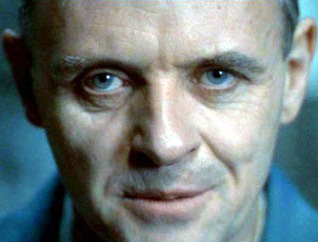Posted on March
30, 2018
Munch Kin
Cannibalism becomes too familiar
by
Daniel
Clark
If somebody whose diet consists of vegetables is
called a vegetarian, then calling oneself a humanitarian may soon take on a new
meaning. Consider the following three
news stories, all of which have been reported during the past month:
* A Japanese ambassador angrily denies an internet
rumor, which probably originated from a spoof website, that Japan had legalized
cannibalism, and that there was a popular Tokyo restaurant called “Edible
Brother” where human flesh was sold.
* In Latvia, a “performance artist” posts a Facebook
video in which he appears to cut pieces of flesh from the backs of two
volunteers, fry them in a pan, and feed them to those same people, mimicking
the brain-eating scene from the movie Hannibal.
 *
An article in The Independent
speculates that lab-grown “human meat” could be produced and fed to people,
causing atheist Richard Dawkins to rejoice that we may soon “overcome our taboo
against cannibalism.”
*
An article in The Independent
speculates that lab-grown “human meat” could be produced and fed to people,
causing atheist Richard Dawkins to rejoice that we may soon “overcome our taboo
against cannibalism.”
Coincidence?
Not likely, at least not smack in the middle of what pop culture
historians will one day call the “Zombie Era,” in which everybody who used to
be somebody is eating somebody else. In
movies, television and video games, representations of people eating people
have gone from shocking to mundane inside of a decade.
That such debasement of humanity fails to elicit
horror in entertainment anymore should come as no surprise, given the way it’s
been winked at in the real world. Almost
three years ago, executives from Planned Parenthood were recorded casually
discussing their organization’s procurement and sale of fetal body parts over
lunch. “We’ve been very good at getting
heart, lung, liver,” explained PP senior director Deborah Nucatola,
while pecking away at a salad. In
another video, medical director Mary Gatter sat in a
restaurant booth while offering to “use a less crunchy technique to get more
whole [fetal organ] specimens.” Not only
have these and other horrors not meant the demise of the world’s largest chain
of abortion clinics, but it continues to enjoy taxpayer subsidies to the tune
of over a half-billion dollars a year.
The latest advance in the euthanasia movement is to
couple the practice with organ harvesting.
This began, predictably enough, in the Netherlands and Belgium, and by
last year it spread to Canada. People
who are not otherwise dying are getting guilt-tripped into consenting to their
own killing, by being told that they’re worth more dead than alive. Nobody has yet proposed that the remainder of
the deceased’s bodies be processed into green wafers, but can that really be so
far behind?
For the purpose of producing more easily
transplantable organs, euthanasia activists are suggesting that those people
consenting to the donations actually be killed by the act of having their vital
organs removed. The “live organ
transplants” sketch from Monty Python’s The
Meaning of Life may soon become a reality, and it won’t be any funnier this
time around.
Fertility clinics create countless “extra” human
embryos without consideration of the ethical consequences. Destructive experimentation on these
cryogenically preserved human beings is justified on the flimsy basis that
they’re “going to be discarded anyway.”
Mind you, these embryos have no expiration dates, and are not about to
die unless somebody actively kills them.
If human meat is to be produced from stem cells in laboratories, then
one might argue that every clinic freezer is a bottomless food supply.
The point of all this is not that cannibalism is about
to become part of our everyday lives, but only that we are in danger of it
being destigmatized. We cannot accept a
utilitarian view of human life at its extremities without it infecting humanity
as a whole. Once we endorse the sacrificing
of one innocent human being for another, neither of them any longer has any
human rights. There are simply those
people who are valued by those who have power over them, and those who are not,
and one of the former can join the ranks of the latter in a heartbeat. By this point, people are mere objects, which
may be freely destroyed, dissected or even eaten, just as long as these things
are done in order to serve some megalomaniac’s idea of the greater good.
It’s not so outlandish that a restaurant could become
a trendy destination for avant-garde foodies by serving human meat. It could even sign an endorsement deal with
Anthony Hopkins, and sell tee-shirts that say, “I survived dinner at
Hannibal’s.”
Just don’t serve it with fava beans. Those things are nasty.
The Shinbone: The
Frontier of the Free Press